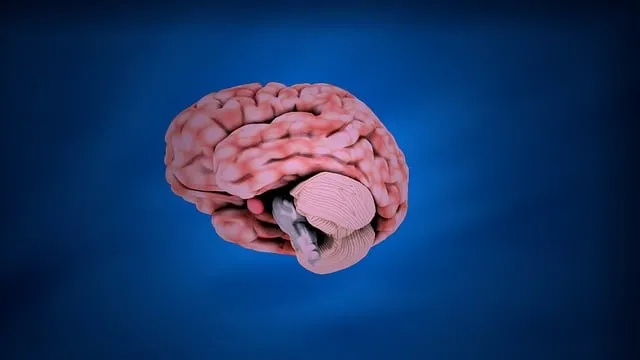Lafayette Kaiser Permanente prioritizes Emotional Intelligence (EI) as a core component of its mental health services, focusing on patient care quality and staff well-being. By integrating EI through initiatives like Mental Wellness Podcast Series, coaching programs, and public awareness campaigns, the organization fosters open communication, empathy, and resilience. Their comprehensive tools and tailored practices enhance emotional regulation, self-awareness, and social skills, ultimately improving patient outcomes and contributing to a healthier mental wellness landscape centered around Lafayette Kaiser Permanente mental health services.
Emotional intelligence (EI) is a powerful tool for personal growth and fostering meaningful relationships, as highlighted by Lafayette Kaiser Permanente’s mental health perspective. This article delves into the significance of EI, offering insights on why it matters for both personal development and connections. We explore key components for building EI, present practical strategies to enhance it at work and home, and introduce tools and practices from Lafayette Kaiser Permanente for measuring and nurturing this valuable skill.
- Understanding Emotional Intelligence: The Lafayette Kaiser Permanente Mental Health Perspective
- Why Emotional Intelligence Matters for Personal Growth and Relationships
- Key Components of Building Emotional Intelligence
- Strategies and Techniques to Enhance Emotional Intelligence at Work and Home
- Measuring and Nurturing Emotional Intelligence: Tools and Practices from Lafayette Kaiser Permanente
Understanding Emotional Intelligence: The Lafayette Kaiser Permanente Mental Health Perspective

At Lafayette Kaiser Permanente, mental health professionals embrace Emotional Intelligence (EI) as a cornerstone in patient care and staff well-being. EI, which involves recognizing, understanding, and managing one’s own emotions, as well as empathizing with others, is a vital component of high-quality healthcare delivery. This perspective is deeply rooted in the organization’s commitment to holistic wellness and risk management planning for mental health professionals. By fostering strong emotional regulation among staff, Lafayette Kaiser Permanente aims to enhance patient outcomes and create a supportive environment.
Moreover, the integration of EI into mental health services aligns with broader industry efforts in Mental Health Policy Analysis and Advocacy. By promoting understanding and sensitivity towards diverse emotional experiences, healthcare providers can offer more tailored and effective treatment plans. This not only benefits patients but also contributes to improving the overall mental health landscape, emphasizing the importance of EI in shaping a compassionate and resilient workforce.
Why Emotional Intelligence Matters for Personal Growth and Relationships

Emotional intelligence is a powerful tool for personal growth and nurturing meaningful relationships. It involves recognizing and understanding your own emotions, as well as those of others, which can significantly enhance communication and empathy. This ability to connect on an emotional level fosters deeper connections with friends, family, and colleagues, leading to more fulfilling interactions and stronger bonds.
At Lafayette Kaiser Permanente, mental health awareness is prioritized, and emotional intelligence plays a pivotal role in this aspect, especially for healthcare providers. Burnout prevention strategies for healthcare professionals often emphasize the importance of resilience building through emotional intelligence. By recognizing and managing their own emotions, healthcare workers can better cope with challenging situations, maintain patient care quality, and prevent professional burnout. This, in turn, positively impacts not only their personal lives but also contributes to a healthier and more supportive work environment.
Key Components of Building Emotional Intelligence

Building emotional intelligence (EI) is a multifaceted process that involves recognizing, understanding, and managing one’s own emotions as well as empathizing with and responding appropriately to others’ feelings. Key components of EI development include self-awareness, self-regulation, social awareness, and relationship management.
At Lafayette Kaiser Permanente, mental health experts emphasize the importance of cultivating coping skills and resilience through various initiatives like the Mental Wellness Podcast Series Production. This involves learning to recognize triggers, managing stress effectively, and developing adaptive strategies for navigating challenging situations. By integrating these practices into daily life, individuals can enhance their emotional intelligence, fostering healthier relationships and improved overall mental wellness.
Strategies and Techniques to Enhance Emotional Intelligence at Work and Home

Building emotional intelligence is a valuable asset for both personal growth and professional success. At work, fostering an environment that encourages open communication and empathy can significantly enhance team dynamics. One effective strategy is to implement Mental Wellness Coaching Programs Development tailored to employee needs. These programs provide individuals with tools to recognize and manage their emotions, leading to improved relationships and increased productivity. Public Awareness Campaigns Development focused on emotional intelligence can also educate employees, promoting a culture of support and understanding.
In a domestic setting, parents and caregivers play a pivotal role in teaching children emotional awareness through age-appropriate activities and conversations. Regular Stress Management Workshops Organization can benefit both kids and adults, offering techniques to handle challenging situations calmly. These workshops teach mindfulness practices, emotional regulation skills, and effective communication strategies that resonate in all aspects of life, including the workplace, as highlighted by Lafayette Kaiser Permanente mental health initiatives.
Measuring and Nurturing Emotional Intelligence: Tools and Practices from Lafayette Kaiser Permanente

At Lafayette Kaiser Permanente, we understand that emotional intelligence (EI) is a vital component of overall well-being and mental health awareness. Measuring EI involves assessing an individual’s ability to recognize and manage their own emotions, as well as understand and empathize with others. This process helps identify strengths and areas for improvement in emotional regulation, self-awareness, and social skills. Our team provides comprehensive tools and practices tailored to nurture and enhance EI development.
Through collaborative efforts with mental health professionals, Lafayette Kaiser Permanente offers innovative programs and resources designed to support individuals in building inner strength and resilience. These initiatives include evidence-based crisis intervention guidance, mindfulness workshops, and coaching sessions that foster self-reflection and emotional intelligence. By integrating these practices into daily routines, individuals can improve their ability to navigate challenging situations, strengthen relationships, and promote overall mental health and well-being.
Emotional intelligence, as explored through the lens of Lafayette Kaiser Permanente’s mental health insights, is a powerful tool for personal growth and fostering meaningful relationships. By understanding and nurturing this ability, individuals can enhance their connections with others and navigate life’s challenges more effectively. Integrating the key components and strategies outlined in this article, whether at work or home, can lead to profound improvements in emotional intelligence, ultimately enriching one’s overall well-being.






